- Jesse Stuart
- Ancella R. Bickley
- James M. Gifford
- Jimmy Lowe
- James B. Goode
- Edwina Pendarvis
- Laura Treacy Bentley
- Bruce Radford Richey
- Ina Everman
- Danny Fulks
- Loyal Jones
- Billy C. Clark
- Linda Scott DeRosier
- Christina St. Clair
- Alexandra Combs Hudson
- Kate Larken
- Barbara Smith
- Carol Van Meter
-
 Authors represented in Appalachian Love Stories include:
Authors represented in Appalachian Love Stories include: -
 Jesse Stuart was a paradox. For a period of his life, Jesse slept with a loaded gun under his pillow, yet he also carried a typewriter with him wherever he went. He courted woman with mud on his boots and pistols on his hips, but he had wildflowers in his hands and envelops completely covered with chicken-scratched poems in his pockets. He was petty yet often kind, mean-spirited but truly helpful to beginning writers, clannish yet hospitable to visitors HARDBACK By James M. Gifford
Jesse Stuart was a paradox. For a period of his life, Jesse slept with a loaded gun under his pillow, yet he also carried a typewriter with him wherever he went. He courted woman with mud on his boots and pistols on his hips, but he had wildflowers in his hands and envelops completely covered with chicken-scratched poems in his pockets. He was petty yet often kind, mean-spirited but truly helpful to beginning writers, clannish yet hospitable to visitors HARDBACK By James M. Gifford -
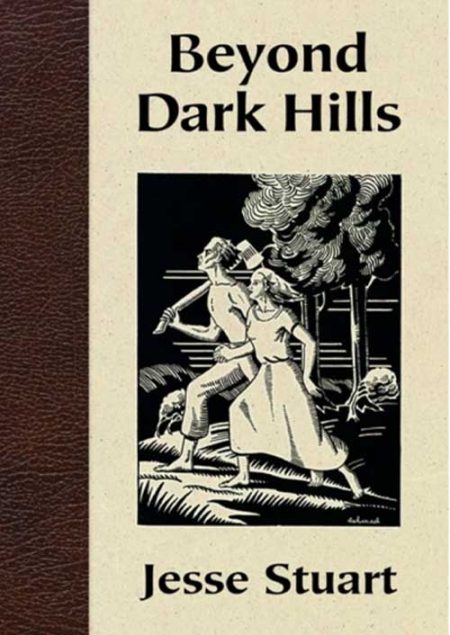 Jesse Stuart began this book in 1932 at Vanderbilt University as a paper for an English professor who asked his seminar students to turn in a maximum of 18 typewritten ages. In the 11 days allotted for the assignment, Stuart crammed 322 pages with the story of his young life. These ageless, universal experiences were told by a vibrant, precocious young man who became one of the most widely read American authors of the 20th century. For the young reader who has yet to experience the transition from childhood to adulthood, this book can be an inspiring guide. For older readers, it may be a beautiful trip down memory lane. HARDBACK By Jesse Stuart
Jesse Stuart began this book in 1932 at Vanderbilt University as a paper for an English professor who asked his seminar students to turn in a maximum of 18 typewritten ages. In the 11 days allotted for the assignment, Stuart crammed 322 pages with the story of his young life. These ageless, universal experiences were told by a vibrant, precocious young man who became one of the most widely read American authors of the 20th century. For the young reader who has yet to experience the transition from childhood to adulthood, this book can be an inspiring guide. For older readers, it may be a beautiful trip down memory lane. HARDBACK By Jesse Stuart -
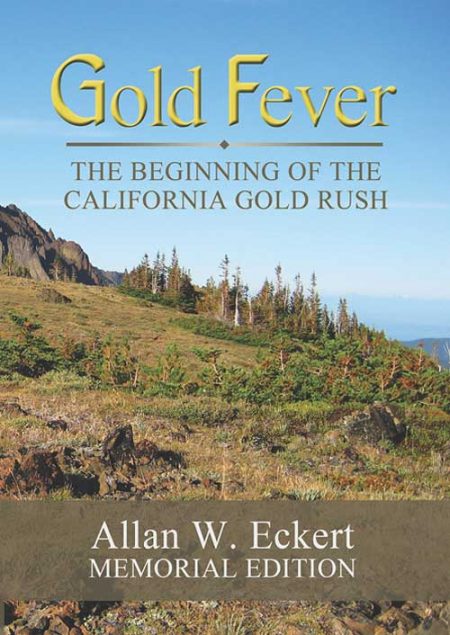 Winning of the West: Book 3 Gold Fever focuses upon the early phase of the Gold Rush era, beginning in early 1848 and concluding in September, 1849. Allan Eckert, a widely admired historian, relates in compelling detail the intriguing chain of developments in this great national obsession, including the following profoundly influential ones:
Winning of the West: Book 3 Gold Fever focuses upon the early phase of the Gold Rush era, beginning in early 1848 and concluding in September, 1849. Allan Eckert, a widely admired historian, relates in compelling detail the intriguing chain of developments in this great national obsession, including the following profoundly influential ones:- Gold's initial discovery
- The early-spring local gold rush
- The entire country's evolving response to the California gold rumors
-
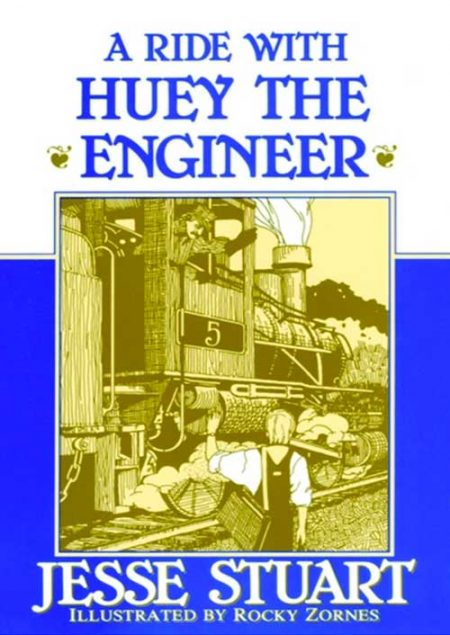 Jesse Stuart Junior Book "What lies in the world outside of Clearwater Valley?" Sunny Logan always wondered. Twice each day, for the two years he had been going to school, he hurried to the railroad tracks. There he could watch Huey the engineer drive his engine No. 5 along the Eastern Kentucky Railroad. Sunny would not miss seeing Huey for anything in the whole world. SOFTBACK By Jesse Stuart
Jesse Stuart Junior Book "What lies in the world outside of Clearwater Valley?" Sunny Logan always wondered. Twice each day, for the two years he had been going to school, he hurried to the railroad tracks. There he could watch Huey the engineer drive his engine No. 5 along the Eastern Kentucky Railroad. Sunny would not miss seeing Huey for anything in the whole world. SOFTBACK By Jesse Stuart -
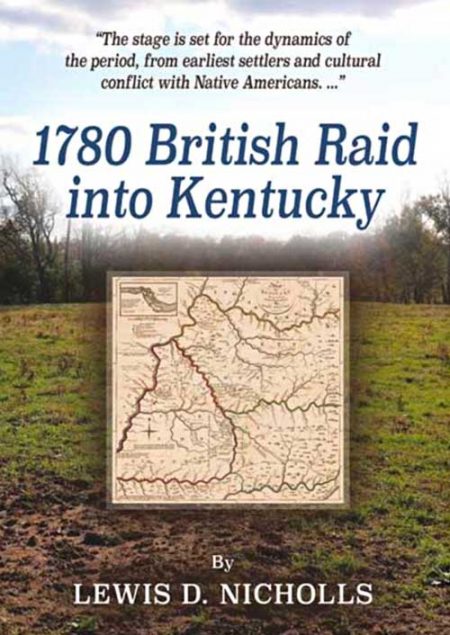 In 1780, the British launched a raid into Kentucky led by Captain Henry Bird to assist the Native Americans to reclaim their hunting grounds from white settlers. The raid targeted Kentucky's Ruddell's Fort and Martin's Station and captured approximately 350 white settlers comprised of men, women, and children. On June 26, 1780, the British and Native Americans marched the captives to Detroit on a 50-day march under brutal conditions, killing several of them along the way. The British marched 129 of these settlers, who were eventually released after the war of escaped. The remaining settlers held by the Native Americans were sold into slavery, adopted into a tribe, sold or eventually released. SOFTBACK VERSION Lewis D. Nicholls
In 1780, the British launched a raid into Kentucky led by Captain Henry Bird to assist the Native Americans to reclaim their hunting grounds from white settlers. The raid targeted Kentucky's Ruddell's Fort and Martin's Station and captured approximately 350 white settlers comprised of men, women, and children. On June 26, 1780, the British and Native Americans marched the captives to Detroit on a 50-day march under brutal conditions, killing several of them along the way. The British marched 129 of these settlers, who were eventually released after the war of escaped. The remaining settlers held by the Native Americans were sold into slavery, adopted into a tribe, sold or eventually released. SOFTBACK VERSION Lewis D. Nicholls -
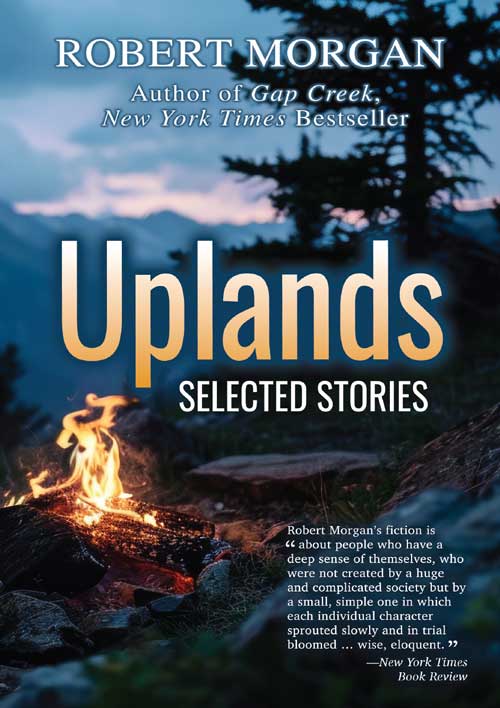 As with his novels, many of Robert Morgan’s short stories let characters, often women, tell their own stories. Morgan’s earliest publications were short stories, and over six decades he has continued to produce short fiction, along with novels, poetry, essays, and biographies. He has said the short narrative is the most challenging genre, requiring the concision and precision of a poem with the drama and implied character insights of longer fiction. These stories reflect the distinctive features of his poetry, vivid, lyrical, evoking a particular place. Morgan has found the culture and land of the southern Appalachians especially suited to expression in poetry and short fiction, the beauty of the ridges and valleys, the unique history, the laconic speech of the people, intense bonds of family and community, the storytelling gifts, and long memories. Gathered from five previous volumes of short fiction, Uplands proves greater in impact than the sum of its individual pieces. HARDBACK VERSION (320 PAGES) Robert Morgan
As with his novels, many of Robert Morgan’s short stories let characters, often women, tell their own stories. Morgan’s earliest publications were short stories, and over six decades he has continued to produce short fiction, along with novels, poetry, essays, and biographies. He has said the short narrative is the most challenging genre, requiring the concision and precision of a poem with the drama and implied character insights of longer fiction. These stories reflect the distinctive features of his poetry, vivid, lyrical, evoking a particular place. Morgan has found the culture and land of the southern Appalachians especially suited to expression in poetry and short fiction, the beauty of the ridges and valleys, the unique history, the laconic speech of the people, intense bonds of family and community, the storytelling gifts, and long memories. Gathered from five previous volumes of short fiction, Uplands proves greater in impact than the sum of its individual pieces. HARDBACK VERSION (320 PAGES) Robert Morgan -
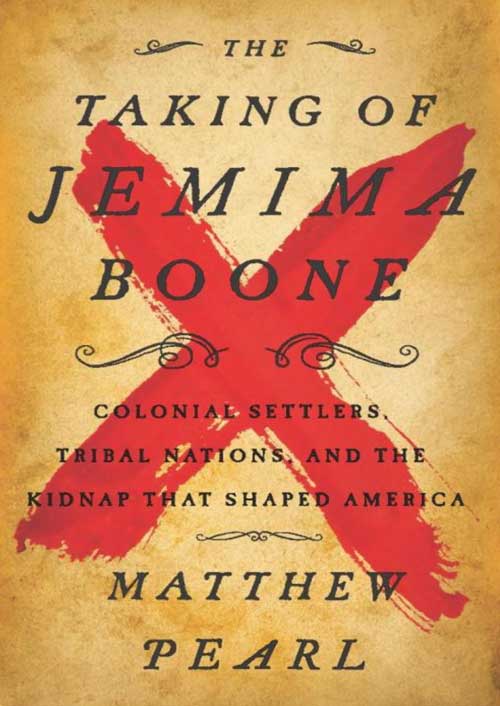 In his first work of narrative nonfiction, Matthew Pearl, bestselling author of acclaimed novel The Dante Club, explores the little-known true story of the kidnapping of legendary pioneer Daniel Boone’s daughter and the dramatic aftermath that rippled across the nation. On a quiet midsummer day in 1776, weeks after the signing of the Declaration of Independence, thirteen-year-old Jemima Boone and her friends Betsy and Fanny Callaway disappear near the Kentucky settlement of Boonesboro, the echoes of their faraway screams lingering on the air. A Cherokee-Shawnee raiding party has taken the girls as the latest salvo in the blood feud between American Indians and the colonial settlers who have decimated native lands and resources. Hanging Maw, the raiders’ leader, recognizes one of the captives as Jemima Boone, daughter of Kentucky's most influential pioneers, and realizes she could be a valuable pawn in the battle to drive the colonists out of the contested Kentucky territory for good. With Daniel Boone and his posse in pursuit, Hanging Maw devises a plan that could ultimately bring greater peace both to the tribes and the colonists. But after the girls find clever ways to create a trail of clues, the raiding party is ambushed by Boone and the rescuers in a battle with reverberations that nobody could predict. As Matthew Pearl reveals, the exciting story of Jemima Boone’s kidnapping vividly illuminates the early days of America’s westward expansion, and the violent and tragic clashes across cultural lines that ensue. In this enthralling narrative in the tradition of Candice Millard and David Grann, Matthew Pearl unearths a forgotten and dramatic series of events from early in the Revolutionary War that opens a window into America’s transition from colony to nation, with the heavy moral costs incurred amid shocking new alliances and betrayals.. HARDBACK VERSION Matthew Pearl
In his first work of narrative nonfiction, Matthew Pearl, bestselling author of acclaimed novel The Dante Club, explores the little-known true story of the kidnapping of legendary pioneer Daniel Boone’s daughter and the dramatic aftermath that rippled across the nation. On a quiet midsummer day in 1776, weeks after the signing of the Declaration of Independence, thirteen-year-old Jemima Boone and her friends Betsy and Fanny Callaway disappear near the Kentucky settlement of Boonesboro, the echoes of their faraway screams lingering on the air. A Cherokee-Shawnee raiding party has taken the girls as the latest salvo in the blood feud between American Indians and the colonial settlers who have decimated native lands and resources. Hanging Maw, the raiders’ leader, recognizes one of the captives as Jemima Boone, daughter of Kentucky's most influential pioneers, and realizes she could be a valuable pawn in the battle to drive the colonists out of the contested Kentucky territory for good. With Daniel Boone and his posse in pursuit, Hanging Maw devises a plan that could ultimately bring greater peace both to the tribes and the colonists. But after the girls find clever ways to create a trail of clues, the raiding party is ambushed by Boone and the rescuers in a battle with reverberations that nobody could predict. As Matthew Pearl reveals, the exciting story of Jemima Boone’s kidnapping vividly illuminates the early days of America’s westward expansion, and the violent and tragic clashes across cultural lines that ensue. In this enthralling narrative in the tradition of Candice Millard and David Grann, Matthew Pearl unearths a forgotten and dramatic series of events from early in the Revolutionary War that opens a window into America’s transition from colony to nation, with the heavy moral costs incurred amid shocking new alliances and betrayals.. HARDBACK VERSION Matthew Pearl -
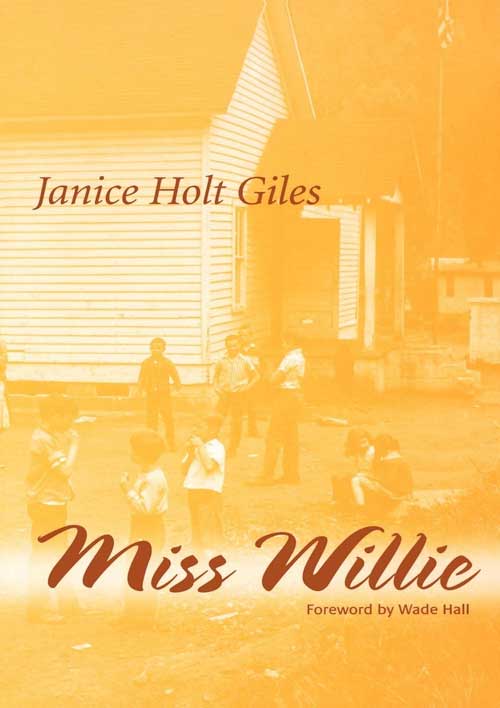 Miss Willie, first published in 1951, is part of Giles's Piney Ridge Trilogy. It tells the story of an earnest teacher who moves to the hills of Kentucky to teach in a one-room schoolhouse. Zealously, she tries to change the ways of the stubborn and proud Appalachian people, but to no avail. They listen to her ideas about sanitation and other foolishness because to argue would be rude. But in the end they quietly go about their accustomed ways. Ultimately, Miss Willie realizes that the hill customs have a beauty and dignity of their own and that some of her efforts to reform them were ill-conceived. Her warmth, generosity, and humor help her bridge the gap and find fulfillment in Piney Ridge. This is a story of reconciliation and the coming together of two different ways of life. Above all, it is a story of people and of the land to which they belong. SOFTBACK VERSION By Janice Holt Giles
Miss Willie, first published in 1951, is part of Giles's Piney Ridge Trilogy. It tells the story of an earnest teacher who moves to the hills of Kentucky to teach in a one-room schoolhouse. Zealously, she tries to change the ways of the stubborn and proud Appalachian people, but to no avail. They listen to her ideas about sanitation and other foolishness because to argue would be rude. But in the end they quietly go about their accustomed ways. Ultimately, Miss Willie realizes that the hill customs have a beauty and dignity of their own and that some of her efforts to reform them were ill-conceived. Her warmth, generosity, and humor help her bridge the gap and find fulfillment in Piney Ridge. This is a story of reconciliation and the coming together of two different ways of life. Above all, it is a story of people and of the land to which they belong. SOFTBACK VERSION By Janice Holt Giles -
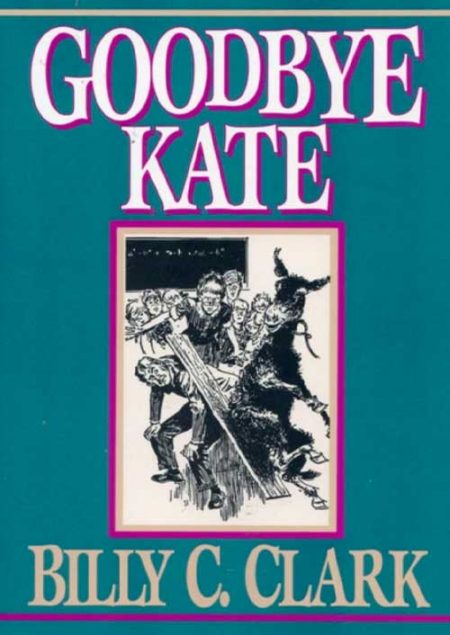 Goodbye Kate, Billy C. Clark’s sixth novel, is based in part on a mule he once owned. In the novel, Kate is found far back in the hills by a lonely country boy named Isaac Warfield. He lives close enough to Tatesburg, the nearest town, to walk to school there, but it’s a small town, and his home is isolated. Isaac has graduated from the little country school he has attended and the other members of his class will be moving on to another school, or to no school at all. He won’t have much contact with his friends anymore, and the nearest neighbor, a money-hungry man named Simm Johns, has no children and is “mean as a striped snake.” Isaac finds Kate when he goes back into the hills to pick some blackberries for his mother. The little mule is apparently as lonely as Isaac is, and she adopts him and follows him home – as far as the pine grove above the house, that is. By Billy C. Clark
Goodbye Kate, Billy C. Clark’s sixth novel, is based in part on a mule he once owned. In the novel, Kate is found far back in the hills by a lonely country boy named Isaac Warfield. He lives close enough to Tatesburg, the nearest town, to walk to school there, but it’s a small town, and his home is isolated. Isaac has graduated from the little country school he has attended and the other members of his class will be moving on to another school, or to no school at all. He won’t have much contact with his friends anymore, and the nearest neighbor, a money-hungry man named Simm Johns, has no children and is “mean as a striped snake.” Isaac finds Kate when he goes back into the hills to pick some blackberries for his mother. The little mule is apparently as lonely as Isaac is, and she adopts him and follows him home – as far as the pine grove above the house, that is. By Billy C. Clark -
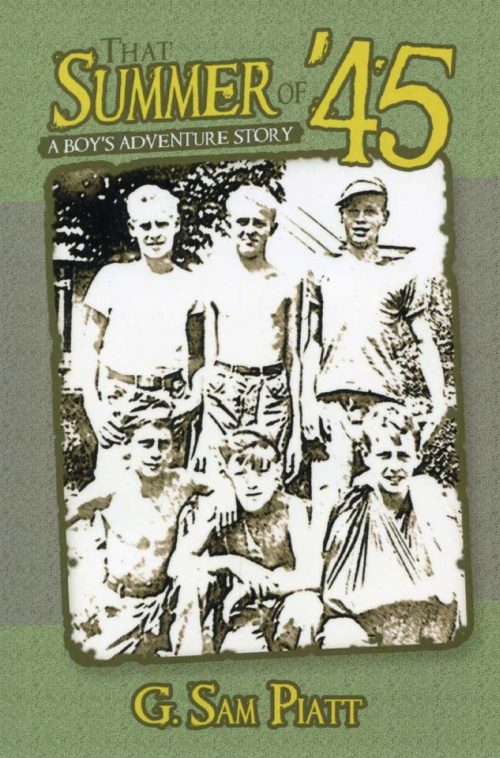 He had reached an age well past the three-score and ten that the Scriptures referred to as the allotted span of man’s life on earth. So it was understandable that he spent more time these days looking back than he did in looking to the future. He wondered if others were affected by nostalgia as strongly as he was of late. For the third time in a week, he had come awake in the middle of the night, staring at the ceiling, tears flowing down the sides of his face and onto the sheet. Oh how he longed to see again the people and the places in that little Ohio River village where he spent his boyhood days. SOFTBACK By Sam Piatt
He had reached an age well past the three-score and ten that the Scriptures referred to as the allotted span of man’s life on earth. So it was understandable that he spent more time these days looking back than he did in looking to the future. He wondered if others were affected by nostalgia as strongly as he was of late. For the third time in a week, he had come awake in the middle of the night, staring at the ceiling, tears flowing down the sides of his face and onto the sheet. Oh how he longed to see again the people and the places in that little Ohio River village where he spent his boyhood days. SOFTBACK By Sam Piatt


